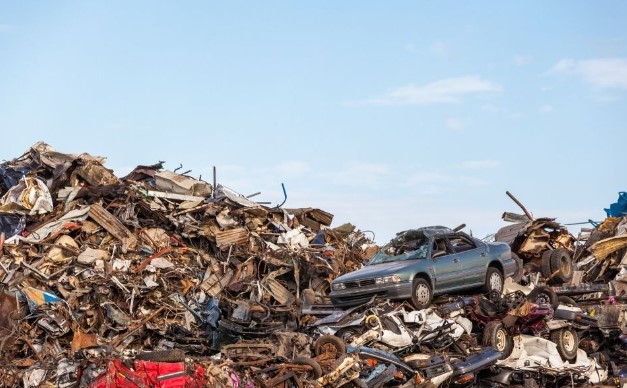Buying Scrap Metal – How To
Purchasing scrap metal involves several steps and considerations to ensure you get the best quality materials at a fair price. We look at the process, from identifying reliable suppliers to negotiating prices and understanding legal considerations.
Finding Reliable Scrap Metal Suppliers
The first step in buying scrap metal is to find reliable scrap metal suppliers. Begin by researching local and online suppliers. Look for reviews and testimonials from other customers to gauge the reliability and quality of the supplier’s materials. Scrap dealers are plentiful, but ensuring they provide quality scrap metals is crucial.
Tips for Finding Reliable Suppliers:
- Research Online: Use platforms like Google and industry-specific forums to find suppliers.
- Visit Local Yards: Physically visit scrap yards to see the quality of their metal scrap.
- Check Reviews: Look for feedback from other buyers to ensure the supplier‘s reputation.
- Ask for References: A reputable supplier will have no issue providing references from other businesses they have served.
- Verify Licenses: Ensure the supplier has the necessary licenses and follows legal regulations.

Identifying Quality Scrap Metal
Once you’ve found a potential supplier, the next step is to identify the quality of scrap metal they offer. This is crucial to avoid purchasing contaminated or low-grade materials that can affect your projects.
Key Points to Consider:
- Grades of Metal: Understand the different grades of metal. High-quality copper, steel, and aluminum are generally more valuable.
- Inspect Materials: Physically inspect the scrap for signs of contamination or damage. Avoid dirty or heavily rusted materials.
- Test the Metal: Use a magnet to differentiate between ferrous (magnetic) and non-ferrous metals. Ferrous metals, like iron and steel, are magnetic, while non-ferrous metals, like aluminum and copper, are not.
Negotiating Prices for Scrap Metal
When you have identified a reliable supplier with quality materials, it’s time to negotiate prices. Knowing the current market rates for different types of scrap metal will give you an advantage.
Negotiation Tips:
- Know the Market Rates: Keep updated with the current scrap metal prices. Websites that track commodity prices can be useful.
- Volume Discounts: Ask for discounts if you’re buying in bulk. Scrap dealers often provide better rates for larger quantities.
- Long-term Contracts: Consider entering a long-term agreement with a supplier for consistent supply and potentially better prices.
- Price Adjustments: Be aware that prices can fluctuate. Negotiate terms that allow for price adjustments in line with market trends.
Legal and Environmental Considerations
Understanding the legal and environmental considerations involved in buying scrap metal is vital. This ensures compliance with regulations and supports sustainable practices.
Key Considerations:
- Legal Compliance: Make sure the scrap dealers you buy from comply with local and international laws. This includes proper documentation and licensing.
- Environmental Impact: Consider the environmental impact of your purchases. Recycling scrap metal reduces the need for mining new materials, conserving natural resources.
- Sustainable Practices: Work with suppliers who follow sustainable practices, such as proper disposal of hazardous materials and efficient recycling processes.
Transportation and Storage of Scrap Metal
Efficient transportation and storage are crucial to maintain the quality of the scrap metal you purchase.
Transportation Tips:
- Proper Loading and Unloading: Ensure that heavy objects are securely loaded and unloaded to prevent damage.
- Use Appropriate Vehicles: Trucks with proper containment are necessary for transporting scrap metal.
- Plan Logistics: Schedule transportation to avoid delays, especially if the scrap metal is needed urgently.
Storage Tips:
- Organise by Type: Store scrap metals by type to prevent contamination and make it easier to access what you need.
- Use Proper Bins: Keep different metals in separate bins to maintain quality.
- Protect from the Elements: Store scrap metal in a dry place to prevent rusting and deterioration.
Maximising Scrap Value
To maximise the value of the scrap metal you buy, follow these practices:
- Clean the Scrap: Ensure the scrap metal is clean. For example, remove any screws or other things that can devalue the material.
- Sort and Grade: Sort the scrap into different grades. Higher-grade metals fetch better prices.
- Market Trends: Sell during periods of high demand to get the best prices. Keep an eye on commodity markets to time your sales.
Additional Resources
Buying scrap metal requires thorough research, quality assessment, effective negotiation, and awareness of legal and environmental considerations. By following these steps, you can ensure you obtain the best metal scrap for your needs.
Additional Resources:
- Scrap Metal Prices: Websites that track real-time scrap metal prices.
- Industry Forums: Join online forums where you can connect with other buyers and suppliers.
- Regulatory Bodies: Stay updated with regulations from bodies like the EPA (Environmental Protection Agency) and local authorities.
By adhering to these guidelines, you can navigate the process of buying scrap metal efficiently and profitably, ensuring you get high-quality materials at fair prices.

